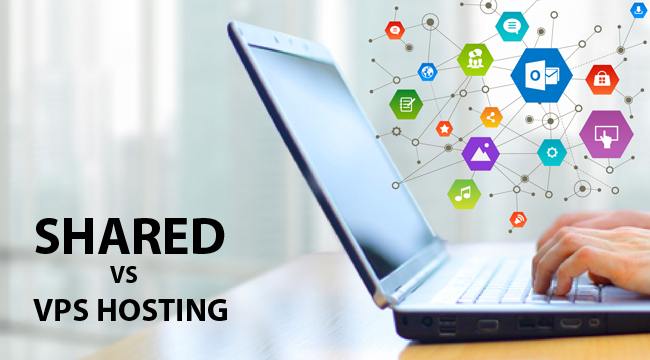You’ve likely come across both of them. This beginner-friendly guide will help you understand Shared hosting and VPS hosting and their differences.
What is Shared Hosting
Shared web hosting means that you’ll share one physical (or virtual) server with more people/accounts. All the server resources will be shared across multiple accounts. However, all shared hosting accounts are still isolated with their own data (websites, mails, files), though they share the server resources like RAM, CPU, Disk Space etc. Usually, you are limited by how many websites you can host, how many FTP accounts you can have, what technologies and apps you can host and more.
This is the most popular web hosting type and it’s the most used one. Shared web hosting is recommended only for small websites that don’t get a lot of traffic.
What is VPS Hosting
One physical server can be divided into multiple Virtual Private Servers (VPS). With VPS hosting, you have dedicated resources to you and you get full control over your server. You can install whatever you want, you can edit any settings you want and, most importantly, you get far better performance out of the VPS since you are isolated from other accounts on the physical server.
VPS hosting is most popular among companies, developers, and websites that need scalability and get a lot of traffic. A big misconception is that you need server administration experience in order to use and run a VPS. The reality is that there are managed VPS hosting providers like RoseHosting.com that do all the server work for you. So you can get the benefits and power of a VPS, without any server experience.
Differences Between Shared And VPS Hosting
To understand the differences, it’s best to know the benefits of VPS over shared hosting first. In most cases, VPS is a far better option than shared hosting. There are many reasons why a VPS is a better choice, the main ones being:
- Faster Website. With a VPS, you get more resources dedicated to you and your websites, meaning you will have better performance and a faster website.
- Full Control. If you get root access with your VPS, you’ll have complete control over your server. You can update and modify anything according to your needs.
- More Secure. Since you’re the only one using the VPS, you can be sure that no one else can jeopardy your security. But, a VPS does require more configurations and setup in order to properly secure it. If you get a Manged VPS, you won’t need to secure the VPS yourself, the hosting provider will do it for you.
- More Options. You can host any kind of an app on your VPS, as long as the underlying operating system supports it. The same cannot be said for most shared hosting accounts, where you’re limited to only certain technologies like PHP, without an option to host Node.js apps.
Given the benefits, a VPS is definitely the right choice for just about any website. Although, if you have a small website that doesn’t have a lot of server requirements (eg. the self-hosted WordPress) and doesn’t get a lot of visitors, then you can host it on a shared hosting account.
You Might Also Like: World’s 10 Best Web Hosting Companies
When You Should Switch to VPS Hosting
There are certain “tells” that you may notice that would give you an indication that you should switch to VPS hosting. Some of them are:
- Traffic Increase. If you get more visitors than you used to and notice a performance downgrade, then it’s definitely time to switch to a VPS. If you expect a traffic spike sometime in the near future, you should also upgrade to a VPS sooner so you’re not too late and experience some downtime.
- Different Apps. When you want to host an app that has specific requirements, but your shared hosting doesn’t allow you to, you should switch to a VPS with full root access. On a VPS, you’ll be able to install any app since you’ll be able to install any requirements that the app may need.
- More Resources. If you’re near the limit on your shared account, in terms of FTP accounts, databases, e-mails etc., you should definitely switch to a VPS. If you host your data on a VPS, you won’t be limited on how many accounts, databases or mails you can use. On a VPS, you can create and use as many accounts as your server’s resources allow you to.


